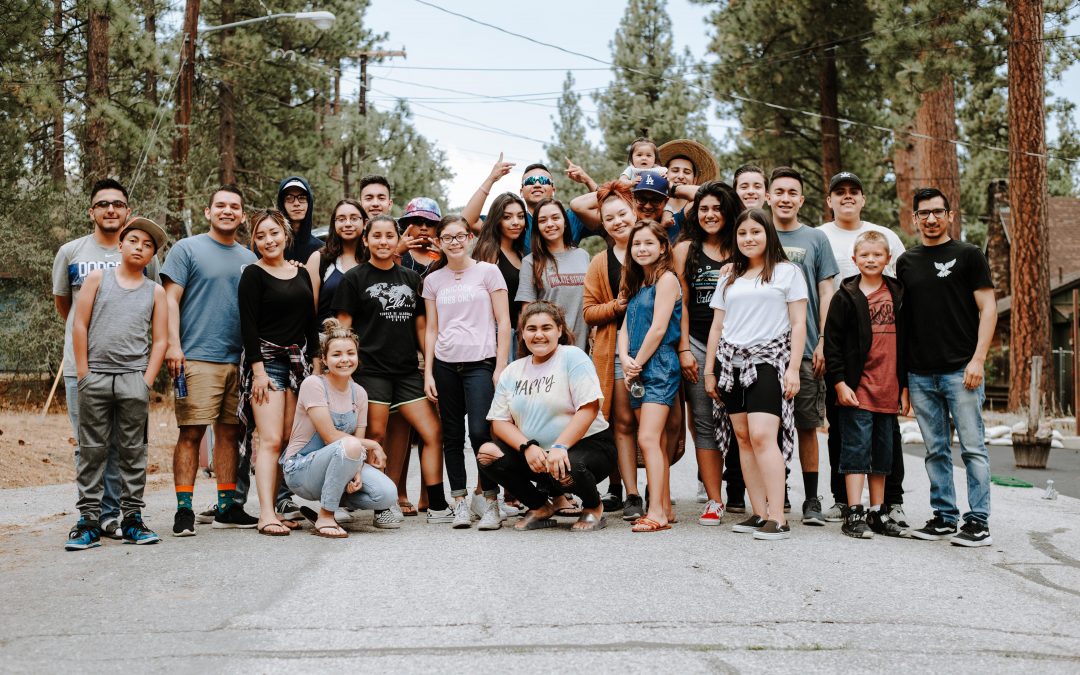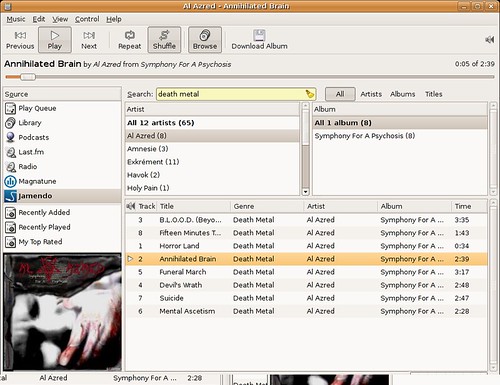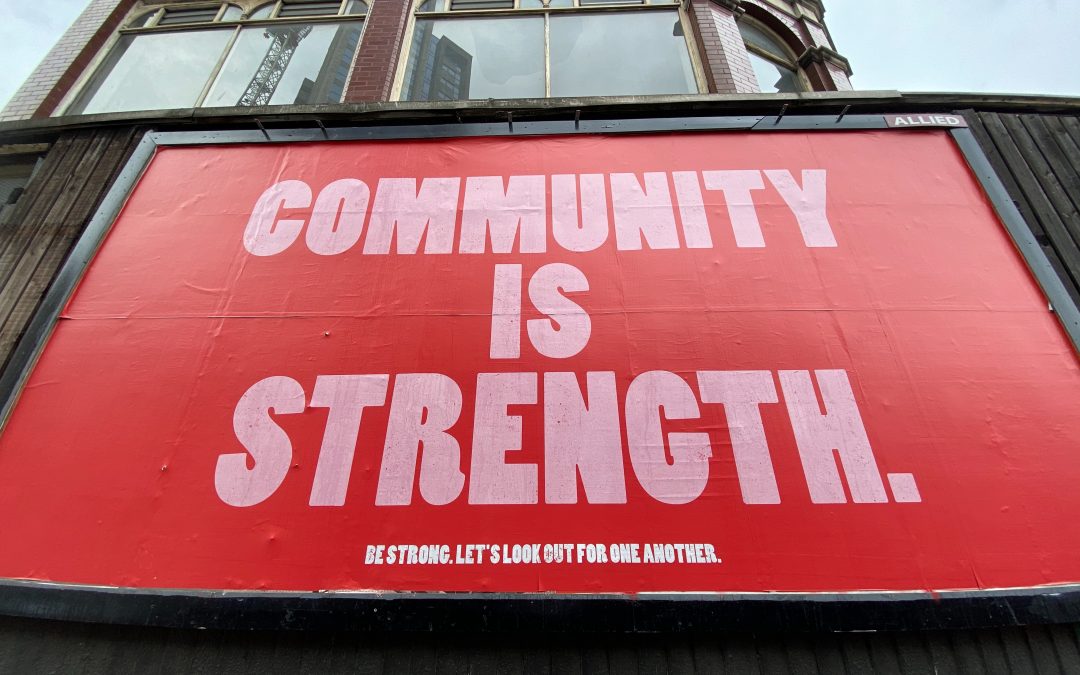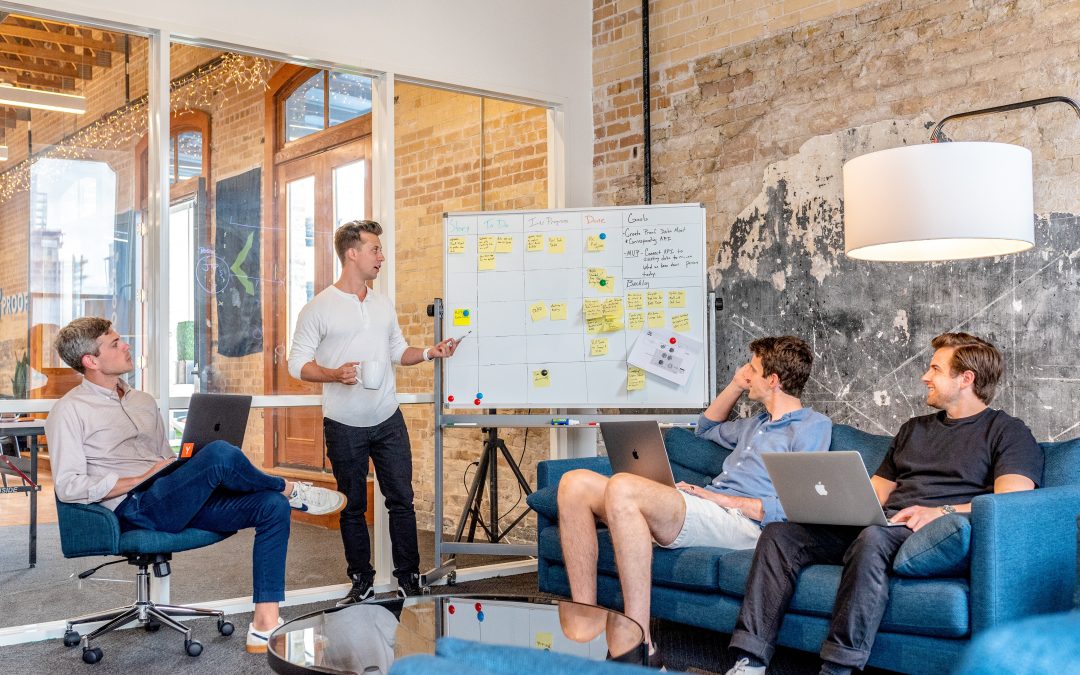
This is living
I just ordered a [Playstation 3](https://www.ps3.eu/flash/index.html?locale=en_GB). Oh yes, the fun is coming. I got [this deal](https://www.play.com/Games/PlayStation3/RNR/3-/1032615/Sony_Playstation_3_PS3_Console_With_60GB_HDD_3_Games_+_FREE_HDMI_cable_+_Click/Product.html). 🙂

The Big Red Recording draws closer

On Feb 26th I [announced the Big Red Recording](https://archivedblog.jonobacon.com/?p=907); an audacious goal to record a full album myself in 24 hours with Cello provided by my pal Emelye. On that day I had no music, no lyrics and no idea if any of this was possible. Now I have seven songs and over £1000 in donations thanks to many of you. Stunning folks. Simply *stunning*, thanks so much. 🙂
In the less than 30 days since that announcement I have spent much of the time when not at work and travelling locked in my studio writing songs. I now have seven songs, and I am pretty happy with the results so far – they are a rich collection of musical textures, from sensitive and emotive to intense and aggressive. My plan here was to try and write an album that triggers so many senses and emotions, and I am quite happy with my work so far.
It is intensely difficult writing seven songs in a defined period of time – music and creativity just doesn’t work that way. The reason is that you don’t write all your good stuff in one go – there is a lot of dud material you have to work through to pull out the gems, so you need to factor in enough time for the dud material to get to the quality. The solution is to spend every living moment working on the music so you feel like you get this right level of polish. Writing seven songs in a month is tough enough, but I didn’t want to just write seven songs, but to write seven *real* songs with heart, feeling and hooks.
So, not long until the big day on the 30th March, and I need your money. Lets get that grand total higher. There are lots of you out there who should be donating but haven’t, so don’t be slack bastards, wrench open that wallet and give some money to a good cause. You know its the right thing to do. 🙂
[GO AND DONATE RIGHT NOW LIKE THE HERO YOU ARE](https://www.myrednoseday.com/personalPage.aspx?registrationID=216454)

Making us win: Integrating open content
One of the most notable changes in Feisty that I have been looking forward to is the updated Rhythmbox with its Jamendo and Magantune support:

With this support you can browse, listen to, download and purchase albums right from within Rhythmbox. It is still very new and a touch buggy, and has a few quirks (when you download albums from Jamendo it loads a torrent instead of adding the album to your library), but it is a great start.
This is the kind of thing I have been banging on about for a while. Sometimes we, the free software community, can get a little pre-occupied with the immediate landscape, and we often focus too much on Linux, free software ethics and open standards. These are essential, but there is a whole world of open content such as Jamendo, Magnatune, Open Clip Art, OpenStreetmap, Wikipedia, Freesound and much more at our fingertips. With such a rich tapestry of open content and a licensing infrastructure (Creative Commons as a great example) that makes it so simple to license and distribute such content, we have a huge opportunity to not only provide a free software Operating System, but to also hot rod it with oodles of free content.
But, this is where we typically fall down. One thing the free software community often sucks at is integration. We are great at building individual chunks of software, but are typically rather ropey at hooking these chunks together in useful and meaningful ways. Of course, this is a sweeping generalisation, and there are indeed exceptions, but I am always keen to see *real integration*. In my mind the general rule should be:
> If you have to access, browse and/or download open content via a web browser, your integration sucks.
The kind of integration I am talking about in Rhythmbox is what I want to see. A media player is your hub for digital content, be it from music players, CDs, online stores, radio or elsewhere, and this is where access to open content *should* live. We implemented exactly the same approach to this problem in Jokosher with our Freesound Plugin. With it you can browse Freesound content right from within Jokosher, audition it and just drag it into your project. This is *real integration*.
There are hundreds of opportunities for such content, and both the GNOME and KDE projects need to ensure that they have a strategy for making content available easily for their applications and for their application developers. We should not expect application developers to have to re-invent the wheel everytime they want to include this kind of support in their programs. I would love to see the GTK and Qt projects working on widgets, and the desktops working on pre-rolled support for these services. Adding this support should be trivial.
The desktop is right at the center of a wealth of incredible content, and the free software ethos has spread out and diversified enough to encourage people to these incredible open content archives, so lets make use of them. In my mind, a Linux distribution that does not include native, integrated access to this content is simply missing a trick.

Connected diversity
I am sat on a train heading home from CeBit in Germany. CeBit is huge. Freaking, insanely, grandiosely massive. The hall we were in was the size of an aircraft hanger and there are 22 such halls. It takes *ages* just to walk from the start of CeBit to the end and they expect around 400,000 visitors to pass through. *Nuts* is an understatement when describing it.
The Canonical booth, which I was wedded to for three days was not in the LinuxPark part of CeBit, as you may expect, but in one of the other halls. We exhibit all the time at Linux conferences, so it would be useful to be out of the way a little and see a different bunch of people and a different demographic of user. We had hundreds of people coming to the booth and gave out around 10,000 CDs to eager visitors.
What was particularly interesting (apart from the the fact that most of the people who didn’t use Ubuntu used Gentoo) was how Ubuntu, and as such Linux and free software, is becoming part and parcel of peoples lives. If anyone walked past the booth, we would grab them and pester them about Ubuntu, and a huge number of people who walked past seemingly paying no interest were already using Ubuntu. Most of these people were simply not all that excited about it – it is the OS they use, and that was the end of it. This shows that Ubuntu is becoming a *real* Operating System – people are using it and not automatically becoming all-singing-all-dancing community Linux fans. It is becoming a norm and part of the furniture and this is good news. Of course, it would be great if they all *did* become community members, but the reality is that a percentage of the user base will become contributors, and to see so many using it in regular end-user scenarios is extremely encouraging.
I also headed to the LinuxPark and checked out the GNOME, KDE, Red Hat, Xandros, LPI, Scribus, OpenOffice.org and other booths, and there was a great atmosphere there. As with most conferences I head to, I always leave with my own observations and thoughts on the wider jigsaw puzzle that is the Linux and free software community. Although I earn a crust working with the community every day, I never want to forget that the community is an organic entity, and will never be fully understood. Every day I learn something new about it, and I find it endlessly fascinating exploring it.
One such observation that I have become particularly aware of in the last year is just how *diverse* our community is becoming. In days of old, we used to talk about diversity, but that really translated into *technical things that were less technical than hacking kernels or applications*. Documentation was seen as diversity, yet it involved LaTeX, SGML, DocBook and an insane toolchain. Testing was diversity, but it required complex bug reporting which demanded stack-traces, core dumps, debugging logs and more. Back then, diversity was still rocket science.
Today things are different. We are really seeing *true* diversity. When I am on the road, I meet hundreds of different people who contribute to free software in so many different ways. I have met hardcore kernel hackers, application developers, documentation writers, artists, journalists, musicians, testers, advocates, event organisers, bug triagers, trainers, translators and more. Many of these people come from different walks of life, have different opinions, different experiences, different skills and get their switches flipped in different ways. There is one distinctive connection though – they believe in free software. Although the ferocity of this belief varies greatly between different groups of people, the key point to remember is that freedom and free software connects us all. We are all fighting for the same thing.
We have the opportunity to do such amazing things and to touch peoples lives in different ways, and this never ceases to inspire and hearten me about the incredible community we are all part of. In our community we conduct our work in the way people *should* conduct their work – we believe in equality and merit, we believe in giving people a chance to do great things, and we do it *together*, not as individuals, but as a combined entity. It really is a direct connection between ability and outcome – if you are good, no matter what your age, experience, gender, race, income, political orientation or otherwise, you can do incredible things from your computer and have thousands or even millions of people experience it. It is the greatest game in the world; nevermind Second Life, nevermind video games – our game has real implications and opportunities for real people.
And this is where diversity kicks in. Traditionally the game was only open to hardcore programmers; to have this incredible impact on the world you needed to get all hot and bothered about structs, pointers, memory allocation and other such geekery. These days, we can be creative in different ways and still have an opportunity to get that incredible feeling of contributing something that really matters to other people. When I visit conferences and shows, you really see this. I am fortunate, like many other contributors in the free software world, in that people come over and thank me for my work. This is a real pick-me-up in an already stressful world, and an already stressful industry, and free software contributors *do* like to be thanked. As such, I have made a policy over the last 8 or so years in that if I meet someone who has contributed to the free software I use on my computer, I try to thank them and buy them a beer if I meet them at a conference or show. It is a small gesture, but it can really make a difference. I am now expecting a flood of “you owe me beer, Bacon” emails. 😛
What is important is that we harness our diversity to move together as one. There is nothing wrong with us having our own groups, such as different distros, desktops and projects, but we always need to remember that we are fundamentally on the same side. We will all differ in our views, the ferocity of them, and the commitment to freedom, and we should not and cannot expect everyone to agree on how we define freedom and work to spread it. The risk with all communities is that they can suffer from in-fighting and internal bickering, and this has happened in one way or another from the beginning, but I find it is always healthy to step back, and remember the core ingredients and the core goals we are fighting for. Purity is not the only metric in winning the game, and if we continue to work together, stay balanced, and optimise how we work together we have the potential to do even more incredible things.
Exciting times folks. Lets just see what we can do… 🙂

Off to CeBit
At stupid-o-clock tomorrow morning I get on a train, to travel to an airport, to get on a plane, to fly to Hannover for CeBit. I will be there with my Canonical Cohorts on the Canonical stand at F74/1 Hall 1 and also with the always excellent ubuntu-de community team who are at Hall 5, Stand G64/1 in the LinuxPark. It looks like the ubuntu-de team are doing an incredible job with the community stand. So, as ever, if you are going to be there, come over and say hello.
St. Patricks day in Germany should be interesting too – never done that before.
I get back from CeBit on Tuesday.

Ubuntu on Dell machines
Our friends at [Dell](https://www.dell.com/) have [opened a survey](https://www.dell.com/linuxsurvey) asking for feedback about which Linux distribution they should install on their machines. Any Linux support would be a win, but naturally I favor Ubuntu. So, Ubuntu community people – head over and make your vote count!
Lets really make Dell realise the demand for Ubuntu on their products. 🙂
[GO AND VOTE!](https://www.dell.com/linuxsurvey)

Interpretations
I have recently discovered comedy gold on YouTube – *music video interpretations*.
The basic idea is that someone takes a song and makes a video with an interpretation of the lyrics, to great comedy effect. It seems YouTube is teeming with them, and here are some of the good ones I have discovered for some bands I listen to:
* Trivium – see [this](https://www.youtube.com/watch?v=GNLDLyeepVs) and [this](https://www.youtube.com/watch?v=Euv38Pxom9s)
* [Children Of Bodom](https://www.youtube.com/watch?v=4FEexRDj3Ww)
* [Avenged Sevenfold](https://www.youtube.com/watch?v=i2tP3BVtxds)
* [Slipknot](https://www.youtube.com/watch?v=nvHiqqOqu8U)
* [Arch Enemy](https://www.youtube.com/watch?v=Nut2MpRycCw)
* [Prostitute Disfigurement](https://www.youtube.com/watch?v=XlL4W-Liibw)
Hilarious. 🙂

Another kicking example
Congratulations to Jerome, Jucato, Zakame, Diane, Yolynne, Dominique, Myra, Clair and Joanna from [ubuntu-ph](https://ubuntu-ph.org/) for doing an excellent job representing Ubuntu at the [FOSS Fiesta Event](https://www.iosn.net/asean-3/countries/philippines/events/foss_fiesta_ipd/). [Jerome has details](https://loktarogar.blogspot.com/2007/03/foss-fiesta-pictures.html) of the event, as well as photos. This is just one of many examples of the Ubuntu LoCo community doing incredible work.
The Ubuntu LoCo community goes from strength to strength! Get your collective behinds over to your nearest one. See the [list of teams](https://wiki.ubuntu.com/LoCoTeamList) for details of which LoCo teams exist, and also feel free to join the [loco-contacts mailing list](https://lists.ubuntu.com/mailman/listinfo/loco-contacts) and poke your face into the #ubuntu-locoteams IRC channel on Freenode. If a team doesn’t exist [see how to create one](https://wiki.ubuntu.com/LoCoTeamHowto)!

Devious Fedora plans afoot
[Max is a legend](https://spevack.livejournal.com/11864.html), as usual. Funny bugger. Promise me one thing though Max, that when the Fedora logo is airbrushed on there, I can wear the Jacket one last time? I am pretty sure its going to make a cool jacket. 🙂
And yes indeed, we are all part of the same freedom-loving cause. Maybe I could airbrush the Ubuntu logo on a pair of your underpants or something? 🙂

Java for Ubuntu
[JavaOne](https://java.sun.com/javaone/sf/) is shaping up to be a pretty cool conference. Unfortunately I won’t be able to head over as it is the same time as the [Ubuntu Developer Summit](https://wiki.ubuntu.com/UDS-Sevilla) in Spain. From [the announcement](https://www.sun.com/aboutsun/pr/2007-03/sunflash.20070306.4.xml) there are some pretty interesting speakers there, and Jeff Bailey and Etienne Goyer will be speaking about writing Java applications for Ubuntu. Now Java is free software it offers a huge opportunity for free software development, and I am sure the session will be fascinating.
